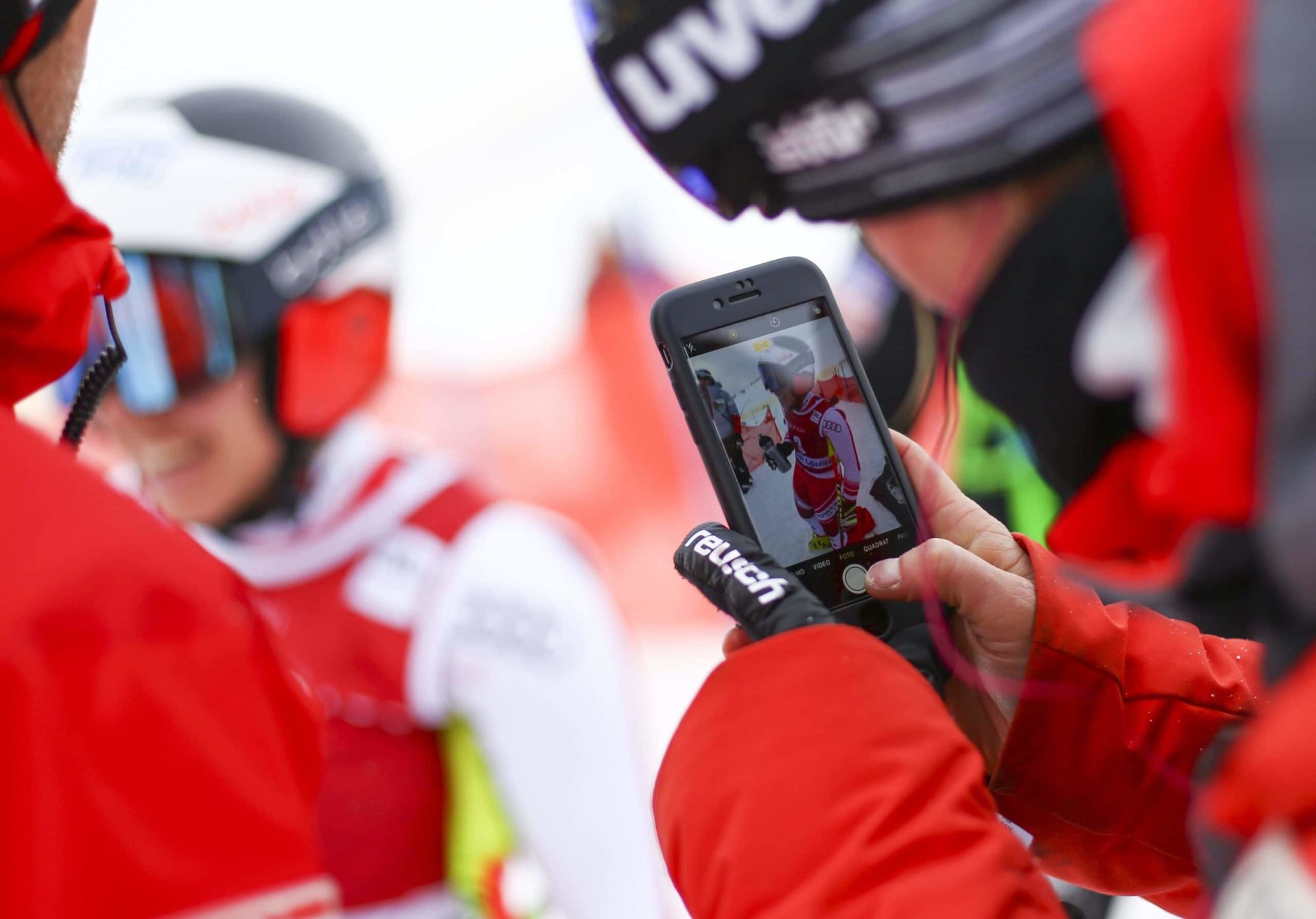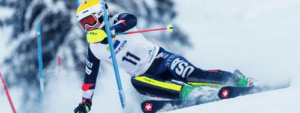My 5 biggest pet peeves on race day

[ad_1]
Jim Taylor
There is no more important time in ski racers’ lives for them to do everything they can to maximize their preparedness than on race day. The simple calculus is that racers won’t perform to the best of their ability if they are not optimally prepared physically, mentally, and with their equipment. Second, the reason why this preparation is so vital is because there is so much on race day that is outside of their control including weather, course, snow conditions, terrain, and start number. As the poet, Robert Burns, noted, “the best laid schemes o’ mice an’ men.” Or, in my less-poetic language, “S&%# happens on race day!
Because of this conflict between controllables and uncontrollables, racers must be deliberate and committed in doing what will help them ski their fastest on race day. Yet, as I attend races as both a sport psychologist and as a parent, I see so many racers doing the exact opposite, that is, doing things that will prevent them, physically or mentally, from being prepared to perform their best on race day.
With that introduction, let me now share with you My 5 Biggest Pet Peeves on Race Day:
- Eating an unhealthy breakfast on the morning of the race. What racers eat the morning of a race is the fuel that propels them in their skiing that day. Yet, I have seen so many racers eating, well, junk before they head out for the day. For example, I was at two divisional series last winter in Mammoth and I couldn’t believe the number of racers who were walking out of the cafeteria with donuts, cinnamon buns, coffee, and even French fries (admittedly, Mammoth has amazing cinnamon buns!).
Tip. Eat a healthy breakfast consisting of a good combination of carbs and protein with low sugar. Examples include eggs, oatmeal, yogurt, and fruit.
- Being on their phones at the start of race day. First, let me clarify that listening to music on phones can be a beneficial “mental tool” on race day. Music generates positive emotions, builds confidence, adjusts intensity, and can provide a positive distraction. However, if racers are staring at their screens, whether checking their social media, texting with friends, watching videos, or playing games, that is not helpful.
Tip. When you head to the hill on race day, put your phone away. Before the race, you should be doing a physical warm-up, hydrating, eating a healthy breakfast, and getting your gear together. In other words, doing things that prepare you to ski your fastest.
- Not having a pre-race routine. One of the worst things that racers can do on race day is doing whatever, meaning not having a clearly defined routine they follow. I see so many racers approaching their race day in a haphazard way, whether it’s little or no physical warm-up in the base lodge, a random skiing warm-up, a too-fast and incomplete inspection, and mostly just standing around and waiting for their race run in the start area. This approach is a recipe for failure on race day even before racers slide into the starting gate.
Tip. A pre-race routine is the most powerful mental tool that racers have available to them to ensure total preparation on race day. Design, use, and ingrain a detailed pre-race routine. This routine should begin when you get up in the morning and be completed when you leave the starting gate. It should include everything that can impact your skiing on race day including physical, mental, equipment, nutrition, social interactions, inspection, and skiing.
- Not taking enough free runs before race runs. Here’s what I see so often at races. Racers will inspect the course, take a free run or two, and then go hang out in the lodge till it’s time to head up for their race run. Moreover, in the lodge, I mostly see racers sitting around a table, all of them staring at their phones. I also see racers arriving at the start far too early and basically just sitting around the start area waiting to go. In this case, the body gets cold, the mind gets dull, and racers are simply not prepared to ski fast.
Tip. Get skiing! The most important part of a pre-race routine is the skiing warm-up. It gets the muscles firing and primed. The skiing warm-up reminds the mind and body of key technical cues. It helps you simulate the type of course you’ll be racing. The skiing warm-up helps you achieve your ideal physical intensity and mental focus. And it builds confidence in your skiing before you have to “throw it down” in your race run.
- Obsessing over Live-Timing between runs and after the race. At races, I see gaggles of racers sitting around their phones between runs and after races obsessing over results on Live-Timing. As I have noted previously, I’m not a big fan of Live-Timing because it causes racers (and parents) to focus excessively on results. Moreover, when racers look at Live-Timing, only a few feel good about it, most just compare themselves to their peers (usually unfavorably) and are disappointed.
Tip. Between runs, only look at Live-Timing to see what your second-run start number will be. After the race, because it’s natural to want to know how you did, there is no harm in a quick check of the results.
- Bonus pet peeve: Not packing the night before the race. I can’t tell you how many times I’ve arrived at races and heard racers say, “Oh no, I forgot my _______ [fill in the blank]!” I seen racers forget their boots, skis, goggles, gloves, helmet, armor, the list goes on. What’s the most common reason? They packed the morning of the race! And what effect does it have on racers on race day? Well, they typically freak out! Stress, worry, and doubt are common emotional reactions, none of which play well with feeling calm, confident, and focused, all of which are necessary for fast skiing.
Tip. There is far more “stuff” required to ski race these days compared to back in the day. And with more stuff to bring, there is greater opportunity to forget essential stuff. So, make and print out (or have on your phone) a list of everything you’ll need the next day. Then, review the list and pack everything the night before. If there is anything you can’t pack till the morning, either set a reminder on your phone or write a note to yourself.
The bottom line is that, on race day, you want to do everything you can to be prepared to ski your fastest. By simply avoiding my 5 (plus bonus) pet peeves, you set yourself to ski your best and achieve your goals on race day.
Want to make mental training a part of your winter training and race program? Here are a few options:
Comments
[ad_2]
Source link






